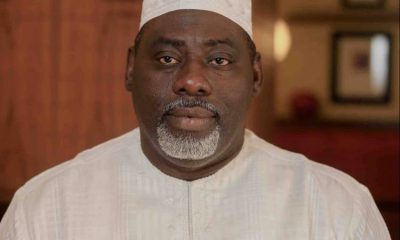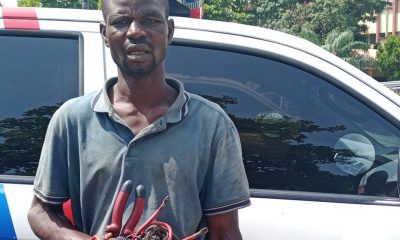metro
UK opens Africa’s largest visa application centre in Lagos
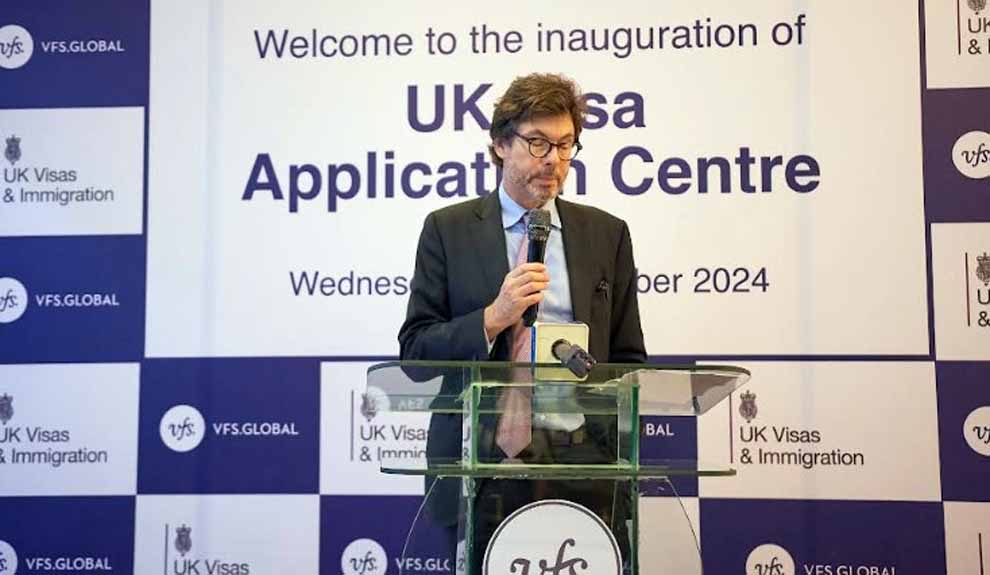
UK opens Africa’s largest visa application centre in Lagos
The United Kingdom has inaugurated its largest visa application centre (VAC) in Africa, located in Lagos, through its commercial partner, VFS Global.
According to a statement from the UK High Commission in Nigeria, the new facility serves Nigerian residents travelling to the UK. Visa applicants can now book appointments at state-of-the-art VACs in Abuja, Ikeja, and Victoria Island, Lagos. These centres began operations on November 19, 2024.
British Deputy High Commissioner Jonny Baxter expressed his delight at the launch, emphasizing Nigeria’s importance as a UK partner. “This is the largest visa application centre in Africa. We look forward to VFS Global delivering even better services for UK visa applicants,” he said.
READ ALSO:
- Female doctors campaign against rising iron deficiency anaemia in Kano
- Why we relocated Osun airport — Gov Adeleke
- 15-year-old boy jailed 43 years for robbing, killing school principal
Marc Owen, Director of Visa, Status, and Information Services at UK Visas and Immigration (UKVI), highlighted the milestone for UKVI and VFS Global. “This new VAC in Ikeja enhances our commitment to offering world-class visa services in Nigeria and across Africa,” he said.
In the 12 months to June 2024, the UK processed over 225,000 visas for Nigerian nationals, covering all categories. Nigeria is one of the largest sources of UK visa applications globally, accounting for 5% of the total.
The UK remains a popular destination for African travellers, and the new partnership with VFS Global aims to ensure visa services remain accessible, efficient, and tailored to applicants’ needs.
UK opens Africa’s largest visa application centre in Lagos
metro
Why we jettisoned regional system, split Nigeria into 12 states – Gowon
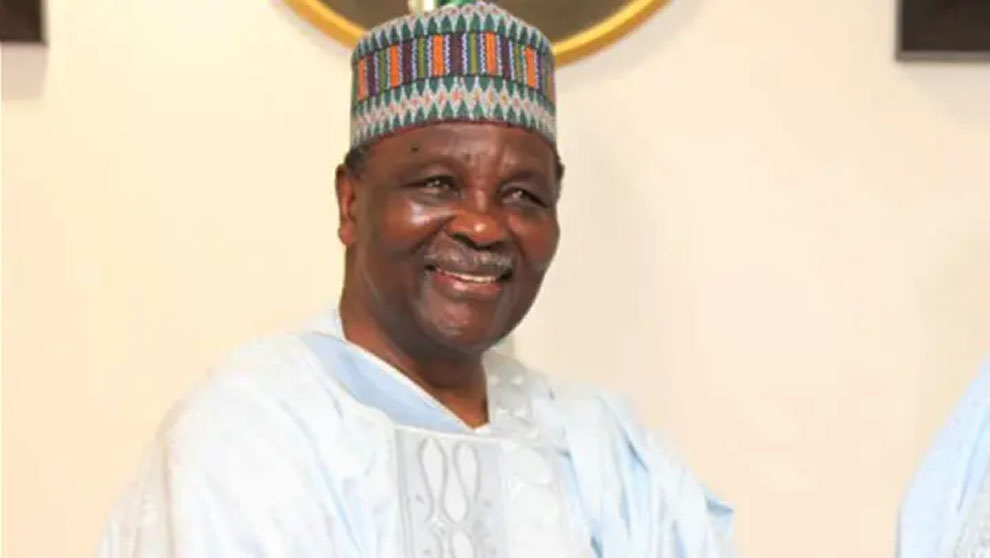
Why we jettisoned regional system, split Nigeria into 12 states – Gowon
Former Nigeria’s Head of state and elder statesman, General Yakubu Gowon (retd), has revealed why he balkanized Nigeria into a 12-state federation.
At independence in 1960, Nigeria ran a regional system with the nation divided into three autonomous and relatively homogenous regions: east, west and north.
The southern region was dominated by the yorubas, the east had Igbo as majority with other minority ethnic groups, while the north had the Hausa and Fulani as the dominant group with a cluster of different ethnicities in the Middle Belt.
The Mid-West region was later carved out of the Western region in 1964.
However, Gowon, after taking over and becoming the head of state in 1966 following a bloody coup that claimed the live of his predecessor and other top government officials, split the country into 12 states 1967 in the build up to the civil war.
Speaking on the balkanisation of the country, Gowon said that the move was aimed at dousing tension and removing the fear of northern hegemony by other federating unit.
READ ALSO:
- NNPCL says Port Harcourt refinery products only for its outlets
- FBI informant among 3 Americans released in China-US prisoner exchange
- TCN spends N8.8bn to repair 128 vandalised transmission towers
He disclosed this when a delegation of the Senator Ibrahim Shekarau-led League of Northern Democrats paid him a courtesy visit at the Yakubu Gowon Centre, in Abuja.
The elder statesman also urged Northern elites to build a consensus around issues that would better serve the greater interest of Nigeria as a whole.
He noted that Nigeria must take precedence over regional affiliation.
“I firmly believe, as I have always said, that the responsibility of maintaining Nigeria’s true democracy rests on the north, and Baba Tafawa Balewa embodied this ideal.
“Let me also say that I hope your visit is not just about returning to the old thinking where the north prioritises the north, the west prioritises the west, and the east prioritises the east-until, of course, the Mid-West emerged to think for itself.
“My position has always been that whatever the north does must serve the greater interest of Nigeria. From your speech, I understand that this is your intention-to ensure the north, in its current state, focuses on national unity.
“It was for this reason that I supported the creation of multiple states, to prevent any one region from becoming too powerful and threatening the country’s unity,” he said.
Why we jettisoned regional system, split Nigeria into 12 states – Gowon
metro
TCN spends N8.8bn to repair 128 vandalised transmission towers

TCN spends N8.8bn to repair 128 vandalised transmission towers
The Transmission Company of Nigeria (TCN) has disclosed that it spent over ₦8.8 billion in the past 11 months to repair transmission towers destroyed by vandals and bandits across the country.
Sule Abdulaziz, TCN’s Chief Executive Officer, made this revelation during the quarterly power sector working group meeting held in Abuja on Wednesday.
Represented by Olugbenga Ajiboye, the Executive Director of Transmission Service Provider (TSO) at TCN, Abdulaziz highlighted the alarming scale of destruction.
He stated that between January 13 and the present date, a total of 128 transmission towers have been damaged nationwide. These attacks have significantly disrupted the nation’s power transmission infrastructure.
Abdulaziz also expressed frustration with the justice system, explaining that apprehended vandals were often granted bail and returned to commit the same crimes. He called for stricter enforcement and penalties to deter such destructive acts.
“Till date, we have spent about N8.8 billion, by our estimation, to put them back to full and functional use,” Abdulaziz said.
“It is so sad that each time the vandals were caught and taken to police for prosecution, police would incident them for theft, instead of vandalism and they will be bailed.
READ ALSO:
- UK opens Africa’s largest visa application centre in Lagos
- Female doctors campaign against rising iron deficiency anaemia in Kano
- Why we relocated Osun airport — Gov Adeleke
“If they are charged for vandalism, they cannot be bailed, but this is where we are. So many of them have been arrested, but each time they will be bailed because police often incident their cases as that of theft.
“When the Shiroro-Mando-Kaduna towers were destroyed, we had to get the full military escorts for our contractors to get the transmission lines and towers restored and in some cases, they would tell us that we could only work for two hours in some days.
“In some instances, they would even tell us that it was not safe to move there. How do we get out of this? How can we deliver electricity to Nigerians under these terrible circumstances?
“These are part of the challenges we are facing in the power sector.”
’50 MILLION NIGERIANS TO HAVE ELECTRICITY BY 2030′
Responding to the challenges in the sector, Adebayo Adelabu, minister of power, said the federal government is collaborating with the World Bank and the African Development Bank (AfDB) to make electricity available to 50 million Nigerians by the year 2030.
Adelabu, who was represented by Adedayo Olowoniyi, chief technical adviser, said the power ministry is collaborating with its finance counterpart “to get this process achieved”.
“Mission 300 is being driven by the World Bank and the African Development Bank and it is a project that will provide electricity to 300 million Africans. Nigeria will benefit 50 million from this,” Adelabu said.
“Nigeria has a large population that is without electricity and this is a great opportunity for us to be part of this process.
“The Compact document will be signed by our President, Asiwaju Bola Ahmed Tinubu, in Tanzania in January 2025.
“We worked extensively with World Bank, the AfDB and the Ministry of Finance to develop the document with all the countries that will be participating in it.
“The most important thing is that we have to drive the process by ourselves through the private and public sector participation. We will do it through the solar form system, mini and micro grid, grid extension and connection.”
“The reality is that it is not actually feasible, based on the resources we have, to extend the grid to all Nigerians, one, from the funding point of view.
“Secondly, it may not be commercially viable to begin to talk of grid extension to those parts that are not viable, but that does not mean that we should not deliver electricity to them, which is their right and as part of the dividends of democracy.”
Adedablu the federal government would start with the home solar system in areas where the grid may not work.
TCN spends N8.8bn to repair 128 vandalised transmission towers
metro
Why we relocated Osun airport — Gov Adeleke
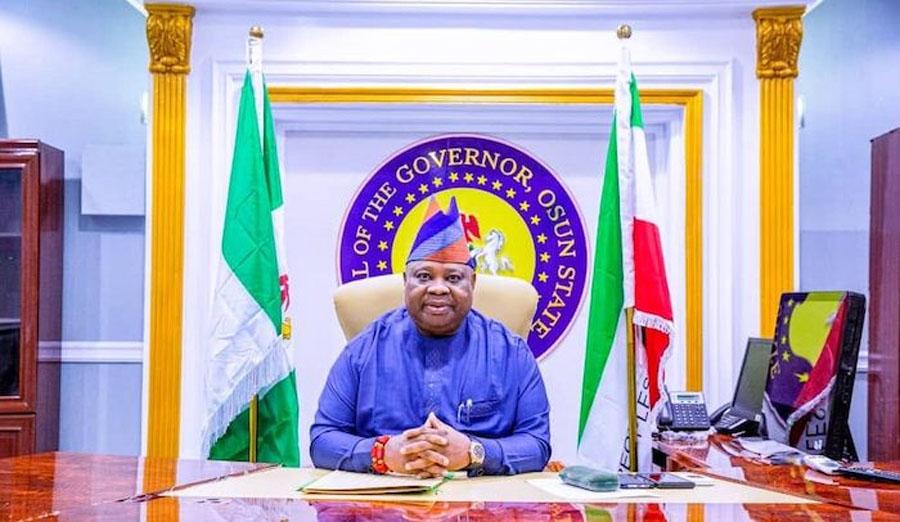
Why we relocated Osun airport — Gov Adeleke
Governor Ademola Adeleke-led administration in Osun State has disclosed that technical issues, especially inadequate runway forced it to relocate the state airport project to Akoda, Ede.
Residents and indigenes of Ido-Osun in Egbedore local government area of Osun State had on Tuesday protested the Governor’s decision to relocate the airport from the town to Ede, Adeleke’s hometown.
Justifying the relocation decision, a member of the airport project technical committee, Lai Oriowo said the decision was based both on viability and technicalities rather than politics.
His words, “The total area of the site was approximately estimated to be 3,871,806.34square metres (387.18 Ha). The existing runway which is 1.67km did not meet the required standard. The minimum runway for a standard airport is 4.8km. The runway length required for class 4E Aircraft is 3600 x 45m and additional minimum distance of 750 metres on both approaches for Runway End Safety Area/Clearway for instrument runway is 5,100m against the available dimension of 3,250m.
“Citing the runway at this site (Old Aerodrome Site) therefore, will require relocation of Adeleke Secondary School and also the displacement of some settlements at the other end of the site.
READ ALSO:
- 15-year-old boy jailed 43 years for robbing, killing school principal
- Barcelona’s wonder-kid Yamal beats 24 others to win Best Young Player Award
- PDP suspends lawmaker over alleged insubordination
“The existing culvert of 65 metres transversely located at different sections of the running route and open/fabricated drainage already constructed are not ideal for an Airport. The required length of culvert across the runway should be 150m against 65m to cover both runway width and its strip.
“The uncompleted terminal building, control tower building, and fire and rescue buildings, are wrongly located with reference to the runway; Access to the Airport is limited to only Osogbo – Ede Road.”
He, however, disclosed that the existing airport at Ido-Osun, which is now under the control of the Air Force would serve both as training school and alternate airport in line with the existing Memorandum of Understanding between the State Government and Air Force.
Despite the clarification by the state government, the Chairman of Allied Peoples Movement, APM, in the state, Adewale Adebayo, described the decision of the Governor to relocate the airport to his home town as undemocratic.
Why we relocated Osun airport — Gov Adeleke
-

 Sports2 days ago
Sports2 days agoFrench football star, Paul Pogba’s blackmail trial begin in Paris
-

 metro2 days ago
metro2 days agoBREAKING: Port Harcourt refinery begins operation
-

 Politics3 days ago
Politics3 days agoLagos 2027: Seyi Tinubu campaign team releases his life documentary
-

 Entertainment3 days ago
Entertainment3 days agoPolygamy best form of marriage for Africa – Okey Bakassi
-

 metro3 days ago
metro3 days ago40-foot container falls on car in Lagos
-

 International3 days ago
International3 days agoTrump to sack 15,000 transgender officers from U.S. military: Report
-

 Education2 days ago
Education2 days agoUS University opens 2025 scholarships for international students
-

 News2 days ago
News2 days agoYahaya Bello reports to EFCC office with lawyers



